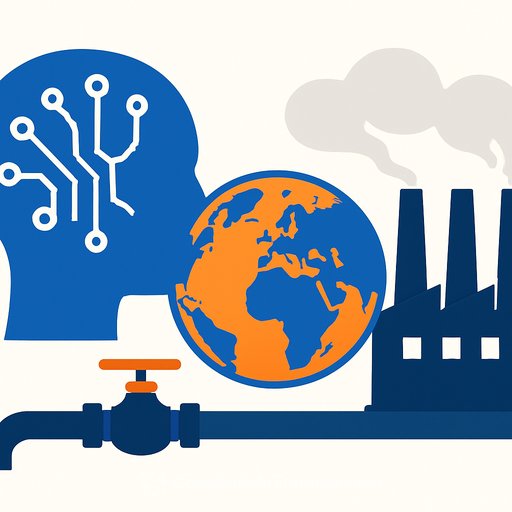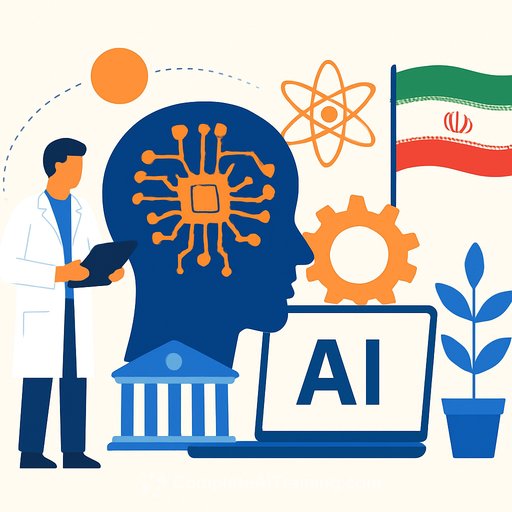Zencoder Launches Zen Agents: A New Era for AI in Software Development
Zencoder has introduced Zen Agents, a platform that enables organizations to create and share specialized AI tools across software development teams. This launch includes an open-source marketplace where developers can contribute custom agents and discover new tools, shifting how teams utilize artificial intelligence beyond just individual productivity boosts.
Traditional AI coding assistants focus mainly on helping individual developers write code faster. Zen Agents takes a different approach by addressing the delays that happen between coding and feedback—the handoffs that slow down collaborative software engineering.
How Zen Agents Shrinks Development Cycles by Automating the In-Between Steps
Zen Agents lets teams build and deploy custom AI agents that fit specific frameworks, workflows, or codebases. These agents can be shared organization-wide to maintain consistent practices and reduce repetitive work. What sets Zen Agents apart is its use of the Model Context Protocol (MCP), a standard developed by Anthropic and supported by OpenAI. MCP allows large language models to interact seamlessly with external tools.
To support this, Zencoder has launched its own registry containing over 100 MCP servers. Since no standard registry currently exists, this registry helps connect agents to specialized tools, which is where the real value lies.
Industry experts see this as a logical next step for AI in development. Early AI assistants improved individual task efficiency but didn’t address the collaborative process where time often gets lost through handoffs. Zen Agents automates parts of the development lifecycle—such as code review and testing—helping teams work faster and more cohesively.
For instance, a trusted AI agent can instantly provide feedback during code reviews. It doesn’t have to be perfect; even identifying issues early allows developers to fix them immediately, speeding up the process and reducing back-and-forth delays.
The platform is built with enterprise needs in mind. Zencoder holds certifications including ISO 27001, SOC 2 Type II, and ISO 42001 for responsible AI management—key credentials for organizations with strict security requirements.
Open-Source Marketplace Harnesses Collective Intelligence of Developer Community
One of the most notable features of Zen Agents is its open-source marketplace. This allows the developer community to contribute specialized agents, creating a broad ecosystem similar to popular extension libraries like Visual Studio Code or npm. This community-driven approach expands capabilities far beyond what a single company could build alone.
Many use cases have already emerged from the community. There are agents that integrate multiple workflow steps—for example, pulling a wireframe from Figma, generating code, and submitting a pull request automatically. This kind of automation streamlines entire processes.
Another example tackles accessibility—often a low priority under tight deadlines. One agent improves code accessibility, helping teams meet important standards without added manual effort.
Matt Walker, Co-founder and CTO of Simon Data, highlights the practical benefits: shared AI agents combined with MCP integrations help build tools that understand specific workflows. His teams have seen less context-switching, improving overall efficiency.
Beyond Coding: The Race Toward AI-Enhanced Developer Flow State
Zen Agents offers straightforward pricing: a free tier plus $20 and $40 monthly plans. The idea is simple—the more you use the platform, the more time and money you save by automating repetitive tasks.
Looking forward, the goal is to increase agent autonomy, not to replace engineers but to boost their productivity dramatically. The vision is to help developers maintain their “flow state” — long periods of focused, uninterrupted work—which is crucial for high-quality software development.
Keeping developers in flow means less switching between tasks and more continuous progress. This aligns with Zencoder’s name and philosophy: achieving a zen-like state of productivity.
Although the initial focus is on software engineering, the platform’s potential extends beyond coding. Use cases in personal assistants and marketing automation are already being explored by early users, showing the platform’s flexibility.
As AI tools evolve, Zen Agents points toward a future where AI orchestrates the entire development lifecycle. Instead of just assisting individual tasks, AI will bridge the gaps between developers, helping teams build software faster and more efficiently.
Your membership also unlocks:





